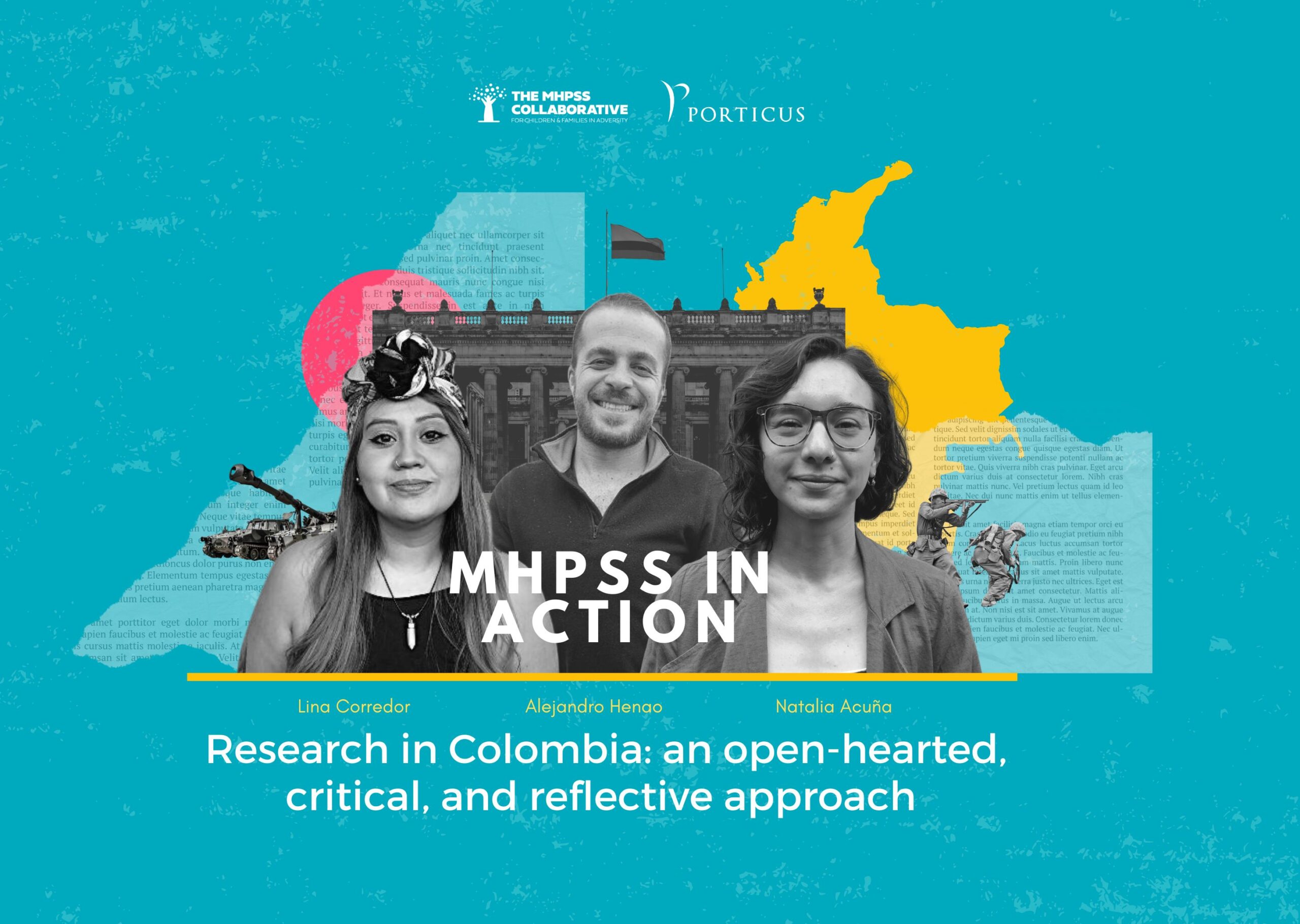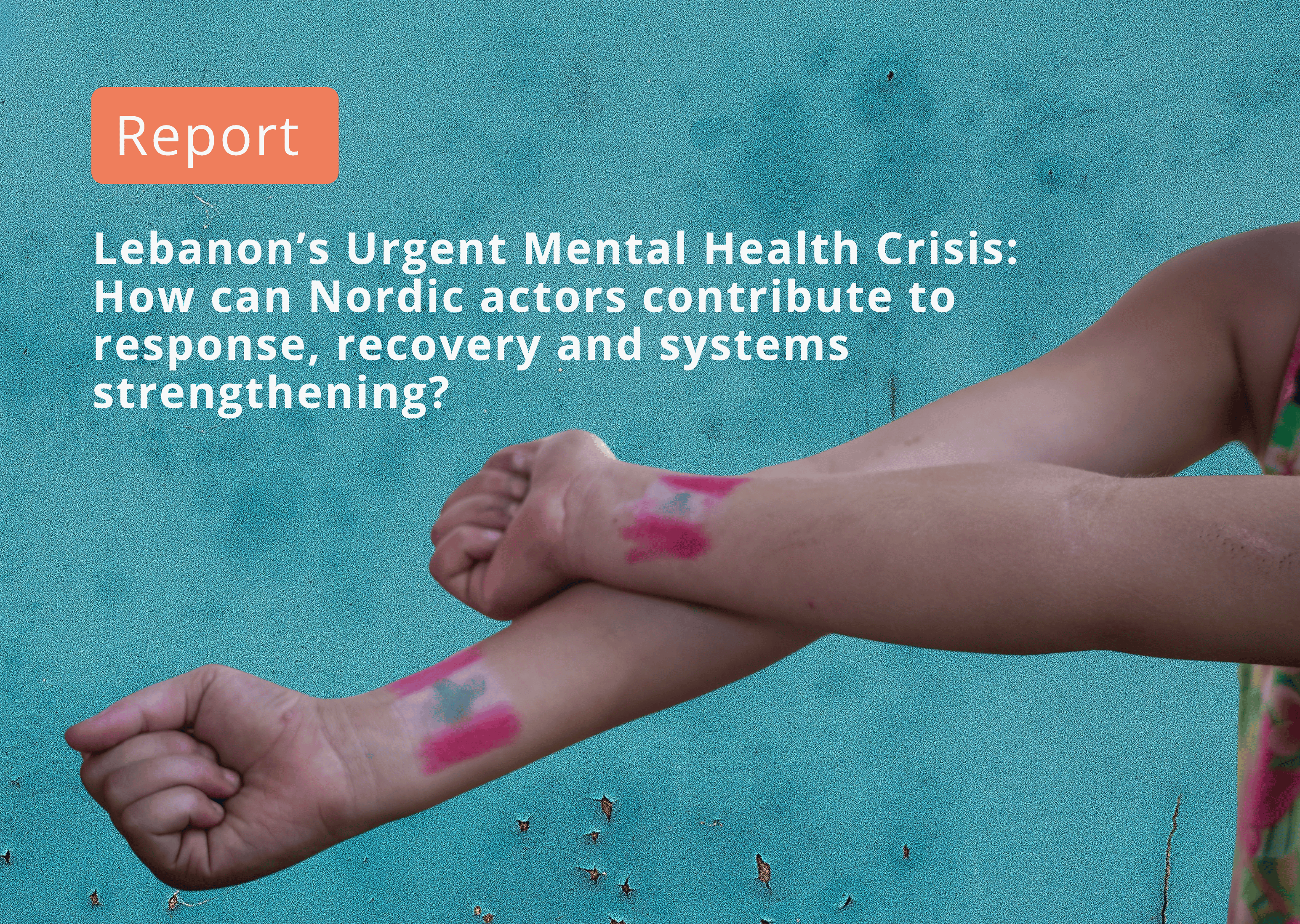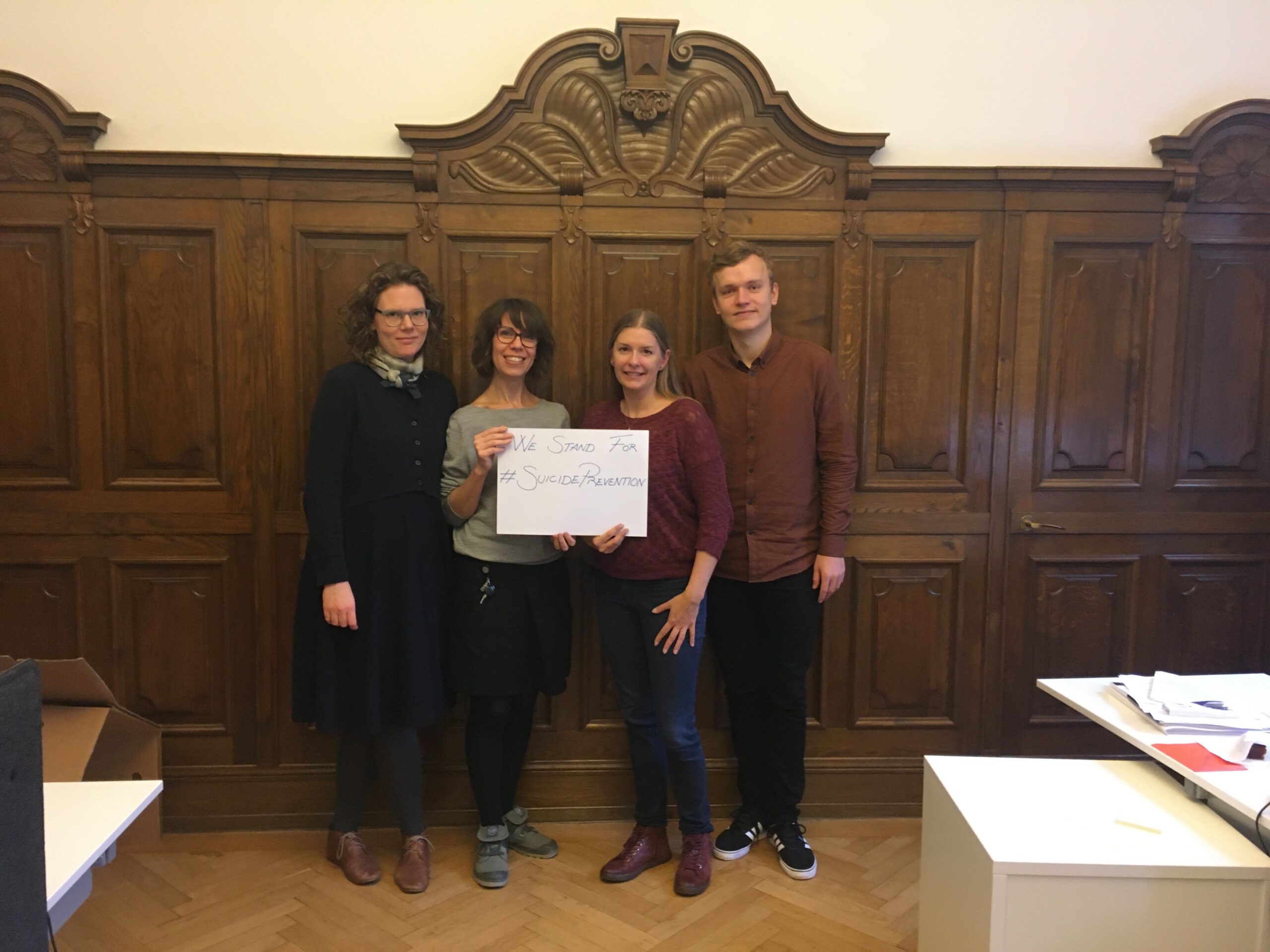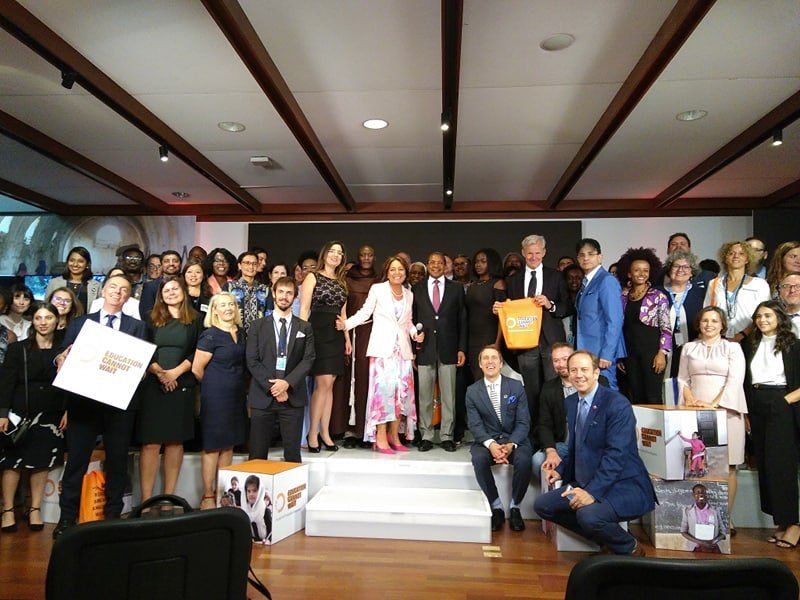
Mountains that look like gods; endless savannas with unique elegant birds; palm forests so dense that you cannot see through them; beaches with sunsets that stop time; rivers that look like seas, telling stories from before life itself. Welcome to Colombia!

We are a group of three researchers, including myself, Alejandro Henao, along with my colleagues Natalia Acuña and Lina Corredor, who embarked on a journey through five departments of Colombia. We packed one question with us in our gear: what are the enabling environments that make it possible to implement mental health initiatives in an educational setting? Our journey was challenging but undoubtedly left a lasting impression on us.
Researching in Colombia is researching in a country that has experienced an internal armed conflict lasting more than 60 years. A conflict that is still ongoing and has deeply affected communities and educational contexts. A conflict that, in 2016, was transformed by a Peace Agreement between the National Government and the FARC-EP (Revolutionary Armed Forces of Colombia – People’s Army).

While many people have heard of Colombia’s armed conflict, those unfamiliar with the country or lacking extensive travel experience may be unaware of the various manifestations of this conflict. In some places, it appears in its most obvious form, that of direct violence: bombings, checkpoints by various armed groups, landmines, etc. In others, its presence is more subtle but equally determining large-scale migrations and displacements; state abandonment; territorial uprooting; vulnerable socio-economic conditions… The list goes on, but when we talk about people’s emotions and relationships, many individuals have experienced fear, worry, and instability for a long time because of the trauma their ancestors went through and the events both past and present.
In studies with victims of armed conflict, the main psychological impacts found are post-traumatic stress disorder, mood disorders, anxiety and depression, phobias, unspecified alcohol consumption patterns, and suicidal risk or attempts (Aristizábal et al., 2012; Bell et al., 2012; Campo-Arias et al., 2014; Charry-Lozano, 2011; Gómez Restrepo et al., 2016; Hewitt Ramírez et al., 2016; Londoño et al., 2005; Ramírez-Giraldo, Hernández-Bustamante, Romero-Acosta, and Porras-Mendoza, 2017). Additionally, there has been a decrease in quality of life, disruption of social and affective networks, modification of family roles, and cultural detachment (Alejo, Rueda, Ortega, and Orozco, 2007; Larizgoitia et al., 2014). Furthermore, this conflict also left the educational system in a very challenging situation.
Prioritized based on their history of conflict, different zones in Colombia had a whole team of teachers and principals appointed by the government a couple of years ago, all selected through a special public contest for peace. Yet, even with the Peace Agreement, the conflict still goes on and you often see teachers terrified of going to their workplace due to insecurity, schools that have a lot of migrant or displaced students and families, children that can find bodies or landmines in the road to the school, etc. On a broader scale, historically, the government has invested a lot of its resources in security and militarization, which leaves the education sector with very few funds left to work with.
To carry out research in Colombia, we invite you to acknowledge the varied ways in which this conflict affects us. It is important not to overlook this reality but instead, engage in dialogue and discussion about it. Additionally, approach the topic with an open and curious mindset. The Colombian conflict has been subject to prejudices and biases perpetuated by television, media, and popular culture. Dare to question these preconceptions as you interact with real individuals and strive to understand each specific context in its uniqueness. By embracing a fresh perspective, you will be able to witness different yet similar aspects of this conflict through new eyes.
As researchers, often we felt hopeless during the data collection. Impotence and indignation were also emotions that accompanied us during our travels. This is a daunting task for the researcher. Engaging with these sociopolitical realities of Colombia, allowing them to affect you, can fill you with hopelessness, frustration, and unease. Many processes seem stagnant, and critical scenarios with high inequality gaps and little or no guarantee of rights are observed. We recommend taking great care of your emotions by dedicating intentional spaces for them. For example, it helped us to have a daily closing space where, after the activities with the communities, we talked about how we felt, and, as a team, we analyzed and reflected on the dynamics and actors we observed.
I clearly remember one day in a town called Tame, where we met with teachers in a focus group. We had to meet in a hotel meeting room because access to the schools was not safe for us. I remember how strongly I felt the frustration and fear of these teachers, who commented to us, seated in a circle, how they have their hands tied because they must keep going to their schools or else the armed groups would suspect o them, but the roads are so insecure for them, with bombings and shootings to be encountered on their way. We finished that focus group at 5:00 pm and had to give us some time to feel those feelings. We met with Lina and Natalia at night and shared those feelings, and talked about how unfair everything seemed to those teachers and how close to our hearts we take their stories with us.
Even in research, we are part of a path that dreams of building a different Colombia. A Colombia that no longer romanticizes or justifies poverty, but instead recognizes the resilience and abundance that emerge from communities that have endured conflict. As researchers, it is easy to believe that our contribution is limited to gathering information. Yet, particularly in the realms of education and mental health, we come across individuals who have seldom, if ever, shared their realities and struggles with anyone, as there are no listening spaces or services available. Your full presence and willingness to embrace others’ experiences are part of the process of a society that needs to listen to itself more and embrace each other with compassion.
We await you in Colombia with an open, critical, and reflective heart.






